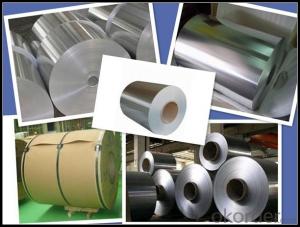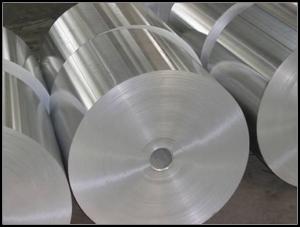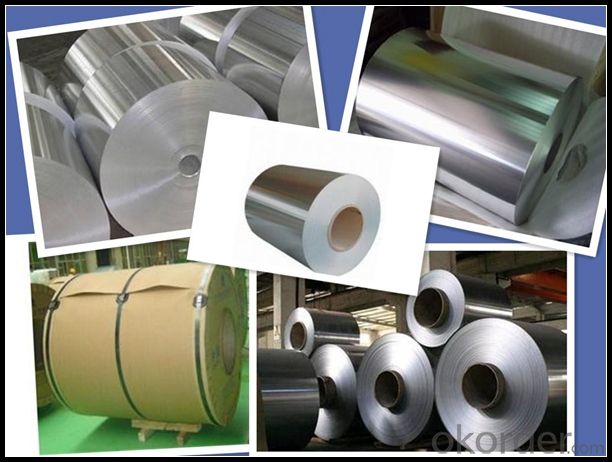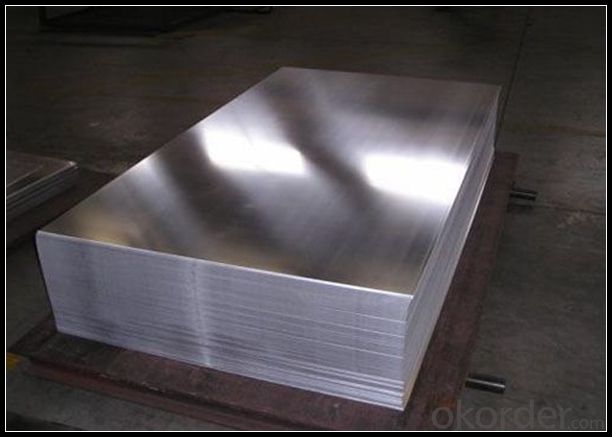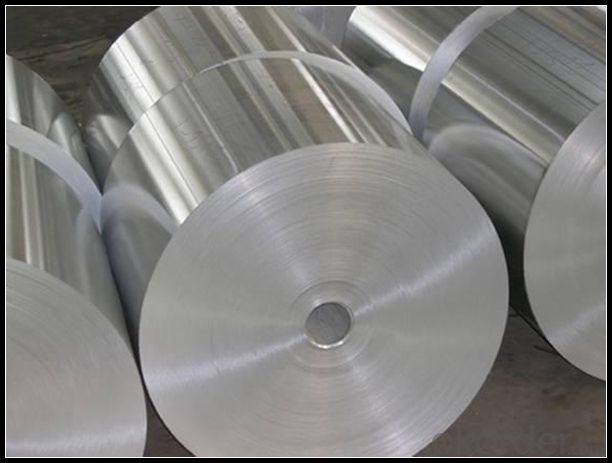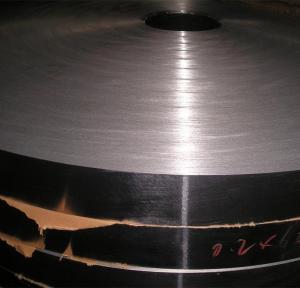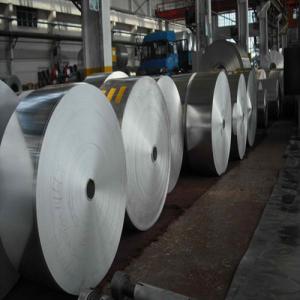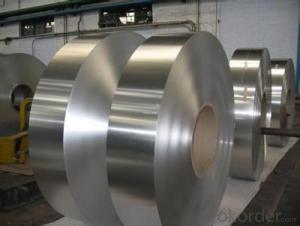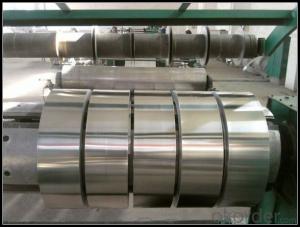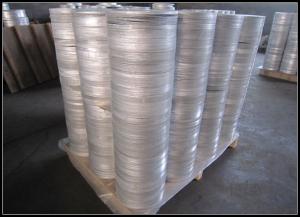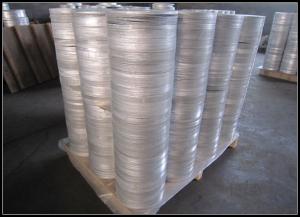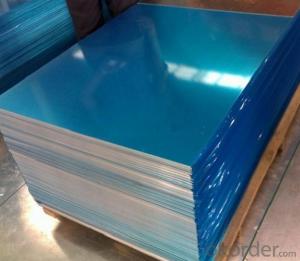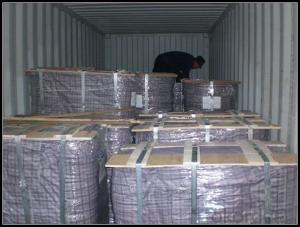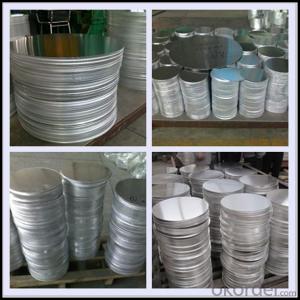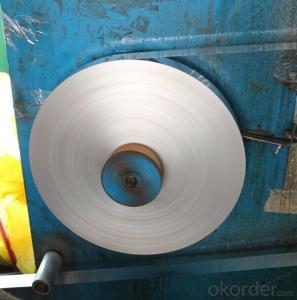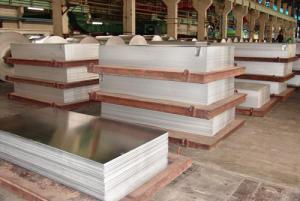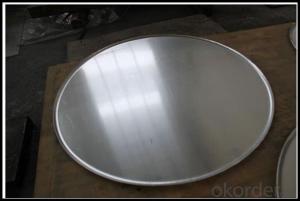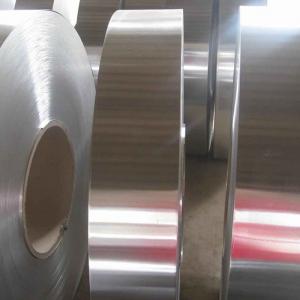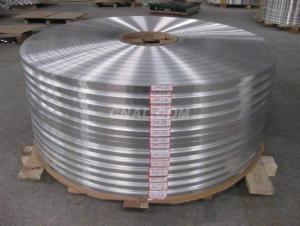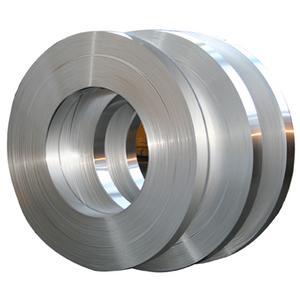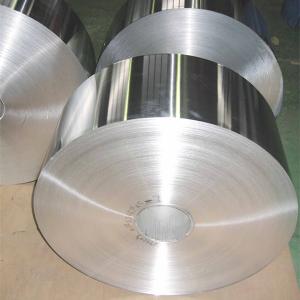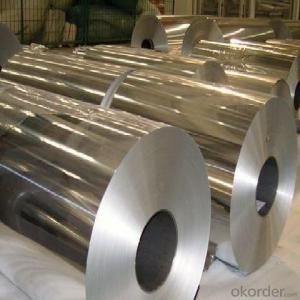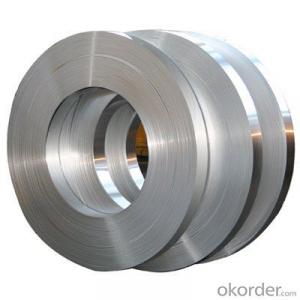Self Adhesive 6061 T6 Aluminum Strips (38.1/50.8mm) for Project
- Loading Port:
- Tianjin
- Payment Terms:
- TT OR LC
- Min Order Qty:
- 1 m.t.
- Supply Capability:
- 4999 m.t./month
OKorder Service Pledge
OKorder Financial Service
You Might Also Like
Specification
1. Specification of Aluminum
1) Alloy | 1050, 1060,1100, 3003 3004 3105 3005 5005 5052 etc |
2) Temper | O/H12/H14/H1/H18/H32/H34/H36/H38//H111/H112/H116/H321/T6/T651/T3/T351 etc |
3) Thickness | 0.1mm to 6mm |
4) Width | 20mm to 3300mm |
5) Coil weight | 100kgs to 6 tons depends on actual requirement |
6) Core material | Aluminum alloy |
7) Coil Inner diameter | 76mm, 152mm,or as required |
2. Application of Aluminum
(1).Interior: wall cladding, ceilings, bathrooms, kitchens and balconies, shutters, doors...
(2).Exterior: wall cladding, facades, roofing, canopies, tunnels,column covers , renovations...
(3).Advertisement: display platforms, signboards, fascia, shop fronts...
3. Feature of Aluminum
The many aluminium compounds with niche applications include aluminium acetate, a salt used in solution as an astringent, aluminium borate (Al2O3·B2O3) andaluminium fluorosilicate (Al2(SiF6)3) which are used in the production of glass and ceramics and synthetic gemstones and aluminium phosphate (AlPO4) used in the manufacture of glass, ceramic, pulp and paper products, cosmetics,
4. Certificate:
SGS and ROHS(if client request, paid by client), MTC(plant provided), Certificate of Origin(FORM A, FORM E, CO), Bureau Veritas and SGS (if client request, paid by client), CIQS certificate
5. Image of Aluminum
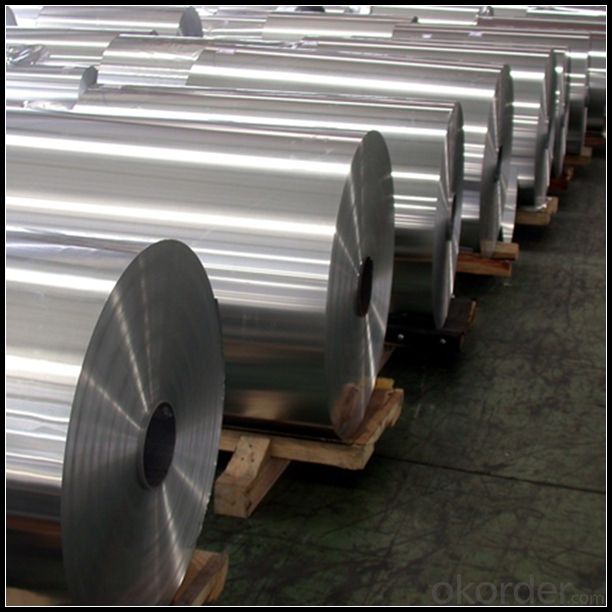
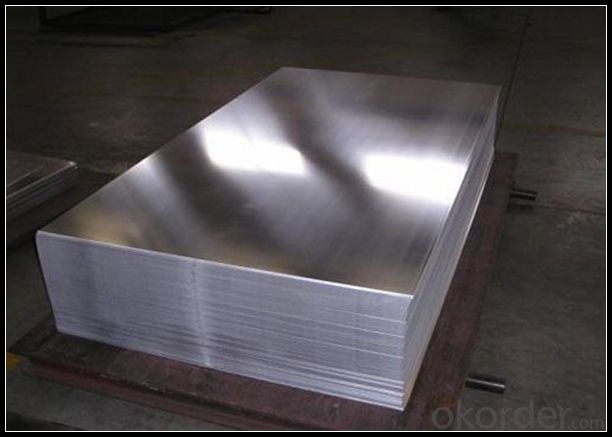
6. Our Service
1. Reply your enquiry in 24 working hours. |
2. OEM, buyer design, buyer label services provided. |
3. Exclusive and unique solution can be provide to our customer by our well traned and professional engineers and staffs. |
4. We can provide free sample for your check |
5. We have the certification of ISO 9001 |
6. Timely delivery |
7. Special discount and protection of sales area provided to our distributor. |
8. Good after-sale service. |
7. FAQ
Q: What is the produce prase? | ||||
A: Normally it would be 40days after received your deposit. | ||||
Q: Can you provide free samples? | ||||
A: Yes, free samples will be sent to you on freight at destination. | ||||
Q: Can I get your latest catalogue? | ||||
A: Yes, it will be sent to you in no time. | ||||
Q: What is the MOQ? | ||||
A: 3 tons | ||||
Q: What are your payment terms? | ||||
A: We accept L/C, D/A, D/P, T/T, West Union,etc. |
- Q: How to distinguish between good and bad aluminum bands?
- Compare the film covered by the aluminum buckleIdentification of the surface coating is good or bad way is to look at the edge of the aluminum pinch plate, to see if the film can be exposed. Qualified aluminum buckle film laminating at high temperatures up, and can not be removed, it can be removed is bound to adhesive, and can not buy. Also a lot of sales will be known as the aluminum buckle oneself is imported film, in fact, aluminum buckle once installed rarely move, hanging on the roof and the imported and domestic film film fundamental difference, do not come out. So there is no need to care about whether the imported film, just take a few samples in the light comparison, choose a good gloss on it.
- Q: This question asks for the standard dimensions of aluminum strips commonly used for exterior siding on buildings.
- <p>The standard size of aluminum strips used for siding varies by manufacturer and specific product line. However, commonly, aluminum siding is available in widths ranging from 4 to 12 inches and lengths from 12 to 16 feet. The most common widths are 6 and 7 inches, while the standard length is often 16 feet. It's important to check with the specific manufacturer for the exact dimensions of the aluminum siding strips you are considering for your project.</p>
- Q: The question asks if it's possible to use aluminum strips for insulating the exterior walls of a building.
- <p>Yes, aluminum strips can be used for exterior wall insulation, but they are typically used as a vapor barrier or as part of a metal stud framing system rather than as an insulating material themselves. Aluminum is a good conductor of heat, so it's not an insulator. Instead, it's often used to create a barrier against moisture and air infiltration. For insulation, materials like fiberglass, cellulose, or foam are more appropriate. Aluminum strips can help secure insulation boards in place and provide a base for attaching exterior finishes.</p>
- Q: Is it possible to safely install metal roofing without the help of a professional?
- <p>While it is possible to install metal roofing materials without professional assistance, it is not recommended for inexperienced individuals due to the complexity and potential risks involved. Metal roofing requires precise measurements, proper tools, and knowledge of building codes. Additionally, working at heights and handling sharp materials can be dangerous without proper safety training. It's safer and often more cost-effective in the long run to hire professionals who are skilled and insured for such work.</p>
- Q: Is it possible to construct awnings or canopies using aluminum strips?
- <p>Yes, aluminum strips can be used to make awnings or canopies. They are lightweight, durable, and resistant to corrosion, making them suitable for outdoor applications. Aluminum's strength and flexibility allow it to be bent and shaped easily, which is ideal for creating the curved or angled structures often seen in awnings and canopies. However, it's important to ensure that the aluminum is of sufficient gauge to support the weight and withstand environmental stresses. Additionally, proper sealing and treatment are necessary to prevent water damage and maintain the longevity of the structure.</p>
- Q: What types of aluminum strip are best suited for cold climate applications?
- <p>Yes, there are specific types of aluminum strip designed for use in cold climates. These include high-strength aluminum alloys such as 7075 and 6061, which maintain their strength and ductility at low temperatures. Additionally, aluminum strips with a special surface treatment or coating can resist corrosion and maintain performance in cold environments. It's crucial to select aluminum strips with good thermal conductivity and low thermal expansion to prevent warping or breaking in extreme cold. Always consult with material specialists to choose the most suitable aluminum strip for your specific cold climate application.</p>
- Q: What are the drawbacks or negative aspects associated with the use of aluminum strips?
- <p>The disadvantages of using aluminum strips include their relatively low strength compared to some other metals, making them less suitable for heavy-duty applications. They can also be prone to corrosion, especially in humid environments, which can reduce their lifespan. Additionally, aluminum strips may not be as rigid as other materials, leading to potential issues with structural integrity. Lastly, while aluminum is recyclable, the recycling process can be energy-intensive, and the environmental impact of its production, including greenhouse gas emissions, should be considered.</p>
- Q: Is it possible to use aluminum strips as a roofing material in regions with cold weather conditions?
- <p>Yes, aluminum strips can be used for roofing in cold climates. Aluminum is a durable and lightweight material that is resistant to corrosion and weathering, making it suitable for various climates, including cold ones. It doesn't rust and can withstand heavy snow loads. However, it's important to consider the thermal properties of aluminum, as it conducts heat and cold efficiently, which may necessitate additional insulation to maintain the desired indoor temperature. Additionally, proper installation and underlayment are crucial to prevent moisture and heat loss.</p>
- Q: Is it possible to use aluminum strips as a material for the exterior siding of a building?
- <p>Yes, aluminum strips can be used for exterior siding. They are known for their durability, resistance to weather, and low maintenance requirements. Aluminum siding is lightweight, easy to install, and comes in various styles and colors, making it a popular choice for both residential and commercial buildings. It also has a long lifespan and can be recycled, adding to its environmental benefits. However, it's important to ensure proper installation and choose high-quality materials to maximize its performance and longevity.</p>
- Q: What effect does the aluminum pulley bring to the belt?
- The timing belt pulley is aluminum. Friction wheel? Not seen with aluminum, may be too hot, aluminum easy adhesion, resulting in increased friction
Send your message to us
Self Adhesive 6061 T6 Aluminum Strips (38.1/50.8mm) for Project
- Loading Port:
- Tianjin
- Payment Terms:
- TT OR LC
- Min Order Qty:
- 1 m.t.
- Supply Capability:
- 4999 m.t./month
OKorder Service Pledge
OKorder Financial Service
Similar products
Hot products
Hot Searches
Related keywords
